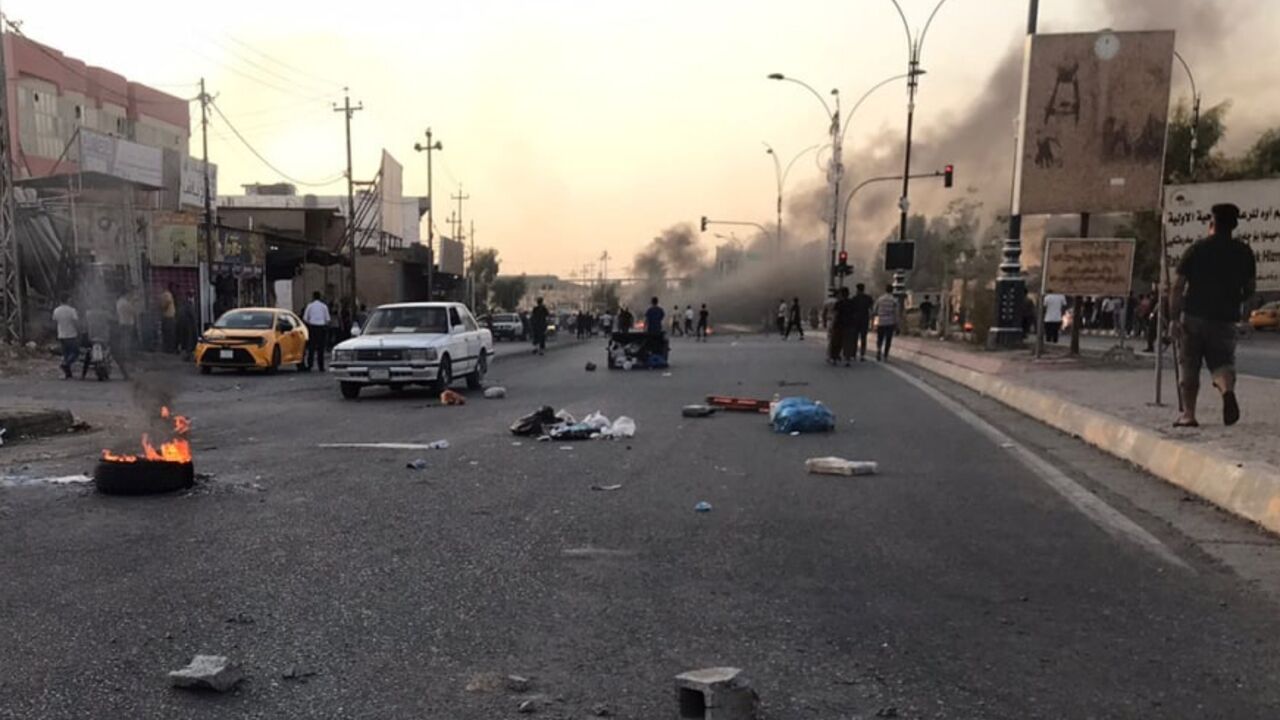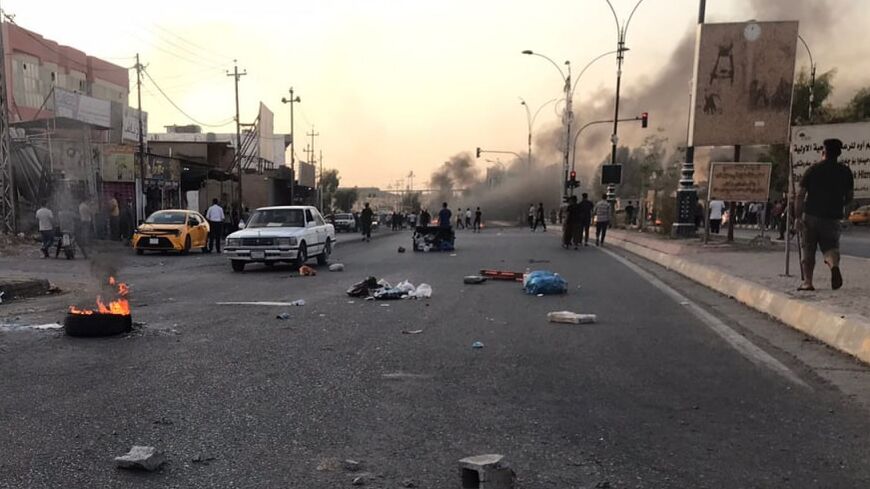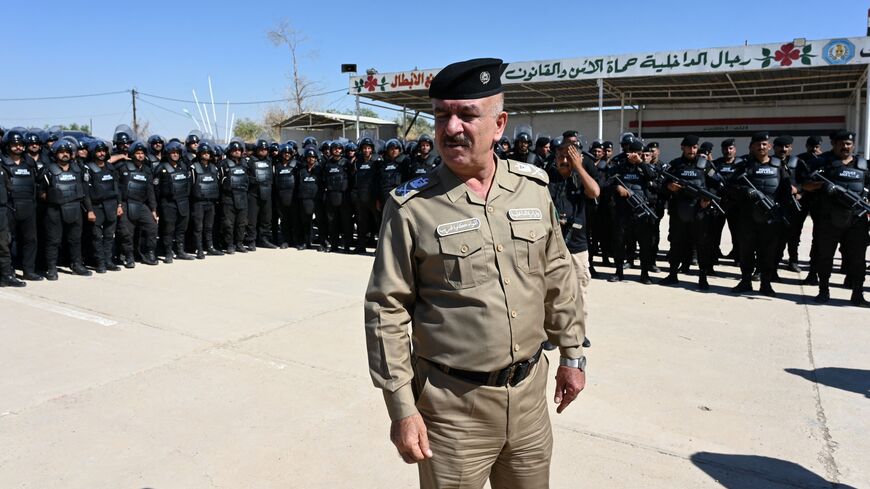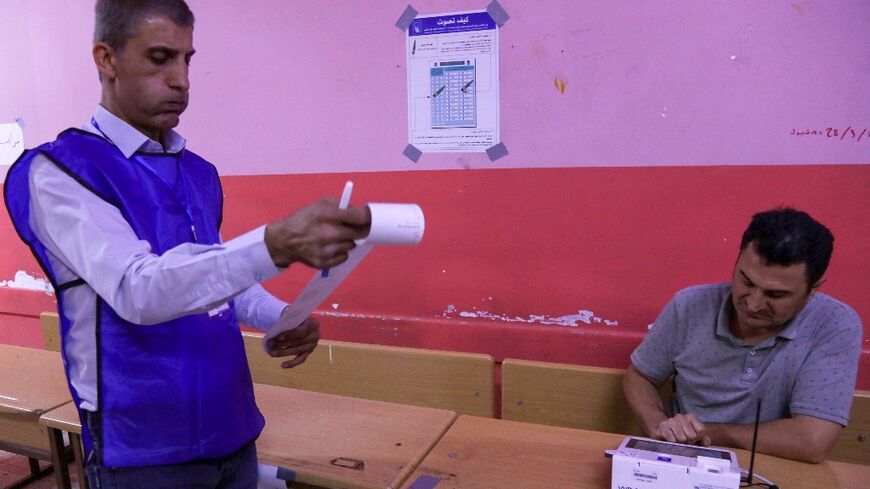Three killed in ethnic protests in Iraq's Kirkuk

At least three Kurds were killed and 16 people wounded Saturday during protests in the multi-ethnic Iraqi city of Kirkuk, as authorities imposed a curfew after days of tensions.
Two people were shot in the chest and a third in the head, Ziad Khalaf, director of the local health authority, told AFP.
The victims were a 21-year-old man and two people aged 37, he added.
Those wounded, including Kurds, Arabs and three members of the security forces, were hit by gunfire, stones or glass, said Khalaf.
The curfew was imposed in the evening after rival protests -- between Kurdish residents on one side and Turkmen and Arabs on the other -- descended into violence despite a security presence.
Earlier in the day, police in the northern city had been deployed to act as a buffer and keep the rival groups apart.
Warning shots were fired to force Kurdish demonstrators to disperse. An AFP correspondent said vehicles on a main avenue were set on fire.
Prime Minister Mohamed Shia al-Sudani called for a commission of inquiry into the incident, and a press release from his office pledged that those responsible would be "held accountable".
Tensions have been brewing for nearly a week in Kirkuk, which has historically been disputed between the federal government in Baghdad and authorities in the autonomous Kurdistan region in the north.
Arab and Turkmen demonstrators staged a sit-in near the headquarters of the Iraqi security forces in Kirkuk province on Monday, after reports that Sudani had ordered the site to be handed over to the Kurdistan Democratic Party (KDP), which used to occupy it.
Kurdish protesters tried to reach the headquarters on Saturday, an AFP correspondent said.
- 'Dangerous situation' -
After the violence, Sudani ordered a curfew in Kirkuk and "extensive security operations in the areas affected by the riots", a statement from his office said.
He called on all parties to "play their part in preventing strife and preserving security, stability, and order in Kirkuk Governorate".
Sudani, who is also commander-in-chief of the armed forces, ordered security forces in the province "to fulfil their responsibilities in maintaining security and upholding the rule of law".
Late Saturday, Turkmen and Arab demonstrators continued their sit-in outside the security building.
In another part of the city, local police chief General Kawa Gharib was trying to calm Kurdish protesters.
In 2014, the KDP and the peshmerga, the security forces of the Kurdistan region, took control of Kirkuk, an oil-producing region of northern Iraq.
However, federal troops expelled them in autumn 2017 following an abortive referendum on Kurdish independence.
Despite a history of rocky relations and tensions, Sudani's government has generally managed to maintain cordial relations between Baghdad and Arbil, the Kurdish capital.
Massud Barzani, a veteran Kurdish leader in the autonomous region, accused "rioters" of blocking the highway from Kirkuk to Arbil with their sit-in.
He said this was "creating a tense and dangerous situation for residents".
Barzani said it was "surprising" that security forces had not prevented "the chaos and illegal behaviour of those blocking the road", while on Saturday "violence was used against Kurdish youth and demonstrators".
His son Masrour Barzani, prime minister of the autonomous region, called on Sudani in Baghdad to "intervene immediately to bring this unacceptable situation under control".
He also urged "Kurdish citizens being persecuted in Kirkuk to show restraint and refrain from violence".






